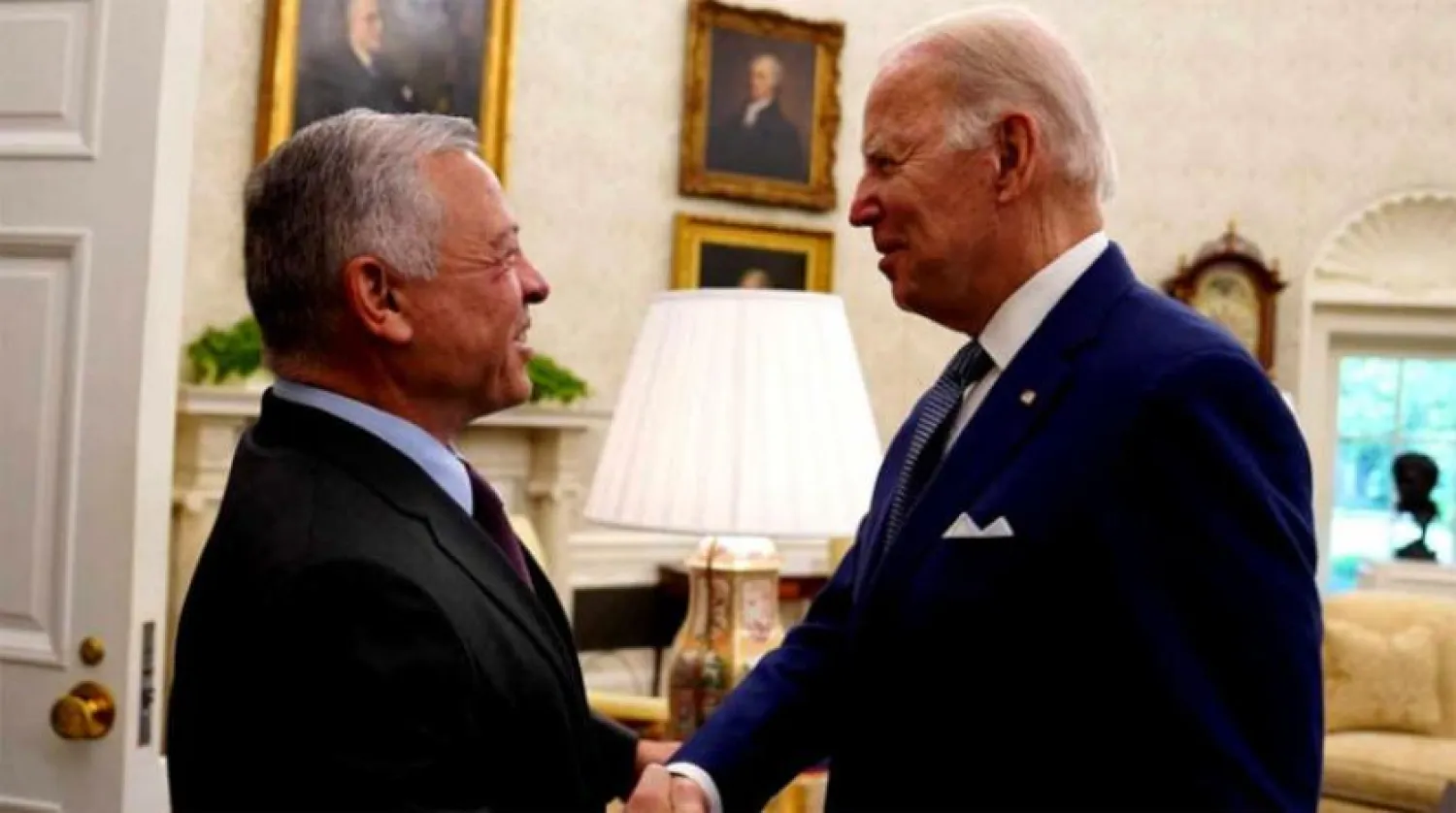US President Joe Biden renewed on Friday his country’s support for Jordan's crucial role as the custodian of Muslim holy sites, particularly Jerusalem and Al-Aqsa.
Biden met with King Abdullah II of Jordan in Washington on Friday amid tensions in the Palestinian Territories where clashes erupted in recent weeks at Jerusalem's Al-Aqsa mosque compound.
The situation worsened this week with the killing of veteran Al Jazeera journalist Shireen Abu Akleh, a dual Palestinian-American national, when she was covering Israeli raids in the occupied West Bank area of Jenin.
King Abdullah's visit to Washington is his second since Biden came to office. He was accompanied by his wife, Queen Rania, and his eldest son, Crown Prince Hussein.
In a statement following the meeting, the White House said Biden reaffirmed the close and enduring nature of the friendship between the United States and Jordan.
“Biden cited the need to preserve the historic status quo at the Haram al-Sharif and he also recognized the Hashemite Kingdom of Jordan’s crucial role as the custodian of Muslim holy places in Jerusalem,” the White House statement said.
It added that both leaders consulted on recent events in the region and discussed urgent mechanisms to stem violence, calm rhetoric and reduce tensions in Israel and the West Bank.
The leaders then discussed the political and economic benefits of further regional integration in infrastructure, energy, water, and climate projects, with Jordan a critical hub for such cooperation and investment.
“Jordan is a critical ally and force for stability in the Middle East,” Biden stressed.
Before his meeting with Biden, King Abdullah II met with a number of officials from the US administration and several congressmen.
On Thursday, he sat down with US Secretary of Defense Lloyd Austin at the Pentagon, where the King warned against the continuous cycle of violence in the Palestinian Territories, especially in light of unilateral Israeli measures, stressing that the repercussions would be damaging to regional security and stability.
For his part, Austin expressed his country’s concern over the latest escalation and violence in East Jerusalem and the West Bank, commending the King’s "critical role" in de-escalating tensions, and noting that the US looks to work with Jordan towards security, stability and just peace for the Palestinians and the Israelis.
Biden is expected to visit the region late next month, where he will meet in Prime Minister Naftali Bennett in Israel and Palestinian President Mahmoud Abbas in Bethlehem.
The Biden administration had announced its support for a “sovereign and democratic” Palestinian state. Biden had previously announced plans to reopen the US consulate in East Jerusalem.
Former President Donald Trump closed the Jerusalem consulate and placed its staff within the US Embassy to Israel that was moved to Jerusalem from Tel Aviv in 2018.









